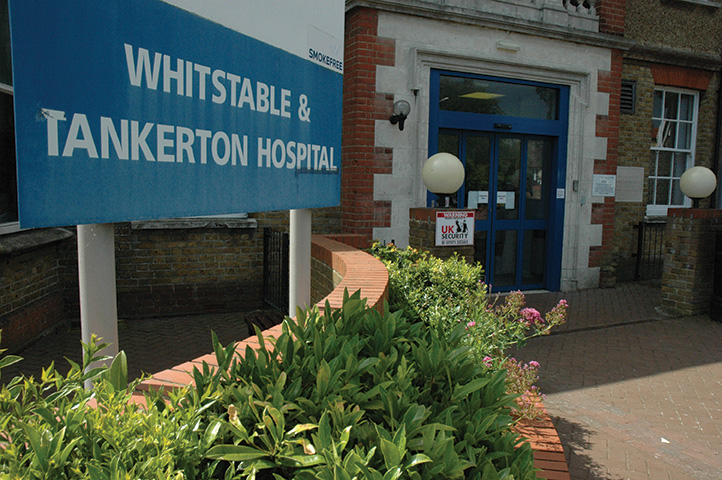No results could be found
Published: 8 October 2021
Bring me sunshine
Long stays in hospital could mean days of boredom and staring at four walls. But for patients in our community hospitals a growing team of therapeutic workers is offering them the chance to spend their time gardening, playing games or just interacting with other people as part of our strategy to support patients who have dementia and other mental health conditions.
When Maxine Hadlow walks into a room patients’ say – ‘here comes the sunshine’.
The therapeutic worker at the Whitstable and Tankerton Community Hospital said: “I always say I have the buttercup effect. It’s mainly due to my yellow uniform, but also I like to think it’s because I do help to cheer people up.”
Maxine’s day starts with a cheerful hello to our inpatients at the hospital, which could be up to 18 people. She hands out the daily menu and helps patients to choose their meals. Then she gets them up and helps them to start activities to brighten their day.
She said: “I’ve always done this kind of work, I’ve been a healthcare assistant in care homes, day centres, rehabilitation units. You see it all in the community. It’s given me a really broad experience of patient care.”
As people in hospital can often have low-level mental health issues, such as anxiety or depression, Maxine’s keen to support these patients too, as well as those with a dementia diagnosis.
She said: “I come in and I say hello to everyone, go through the menus with them, then I help them to do activities they like, for example, we had a few people who liked to watch the Olympics, so we go through to the day room and I set up the TV for them. During the Euros, we had a lot of people who wanted to watch the football. We try to adapt what we do to the needs of the patients, everyone is different so we don’t tend to plan too much in advance.
“The other day we did some planting, with flowers and plant pots. I make sure everyone’s has a book to read, a newspaper, a game, a puzzle or something to do. Most of the time people just want someone to talk to.
“We also have reminiscence interactive therapy activity (RITA) screens – they can watch old films and musicals and look at archive photographs and things like that.
“This is my ideal job. I am a friendly outgoing person and I’m interested in people, I like listening to them as they have got some fantastic stories, I like to find out all about them and about their families. I fill in the ‘This is Me’ booklets which let’s us know all about their likes and dislikes, who is visiting them and so on.
“We often have people in who have special needs, for example, they may be prone to falls, so we do gentle leg raises and exercise to help them to get around the hospital to the toilet or to the day room. Sometimes we need to repeat instructions from the nurses and physios to make sure they have understood it all – it all helps with their recovery. We work very closely with the HCAs and therapists, it’s a great team.
“We try to keep people’s mind active while they are in hospital. It helps with the mental side of things. If you can get someone eager to take part in an activity then they are more likely to engage with the physiotherapy and occupational therapy treatments which means they can get home sooner and more safely.”
“During covid when there was no visiting it was hard, it was down to us to talk to people and keep them company. Visiting restrictions are being gradually eased so it’s better for the patients but we still have lots to do!”
Rachel Daykin, KCHFT Lead Specialist Nurse for Dementia, said; “The therapeutic worker role has proved really important to people’s mental recovery and wellbeing. The role has been really successful so far so we are expanding it for all of our community hospitals and aim to have at least three per site, so there’s always someone available to bring the sunshine to someone’s day.”




